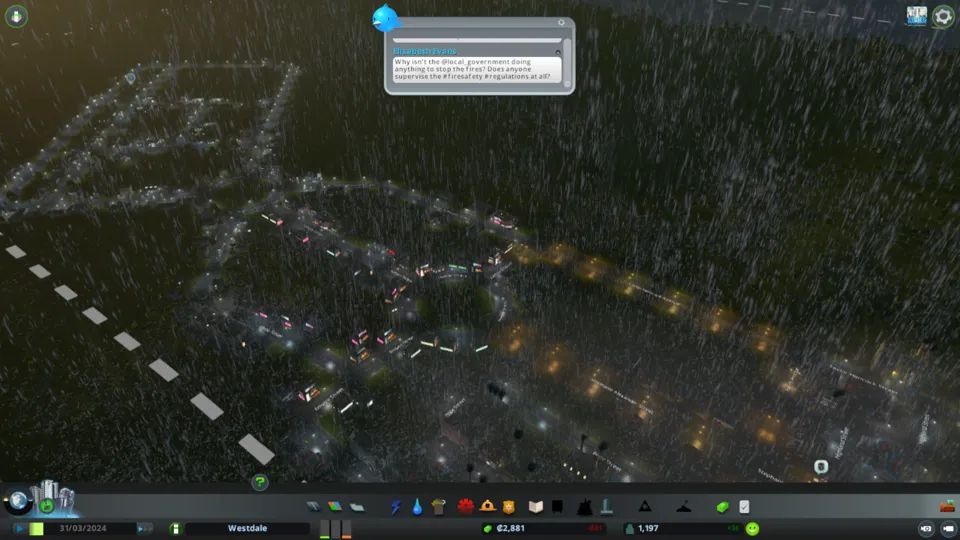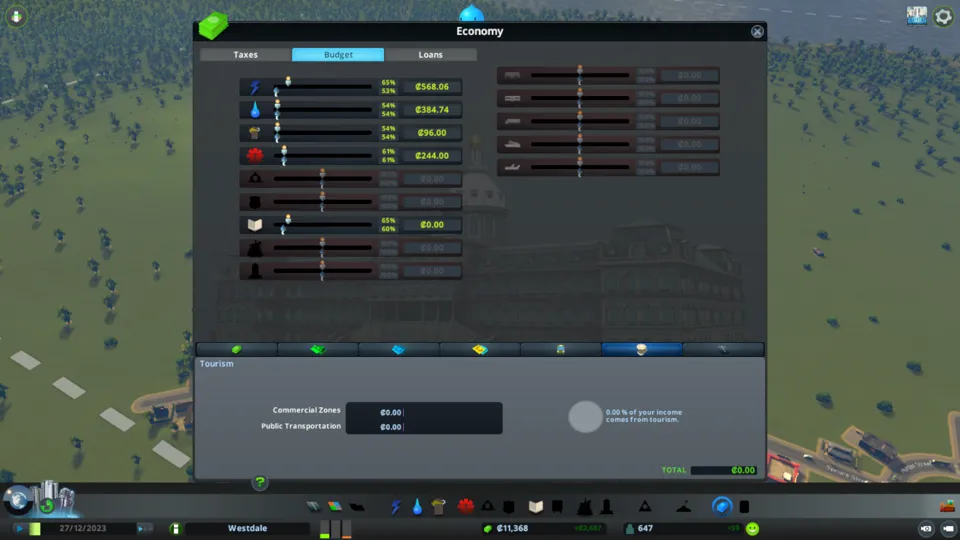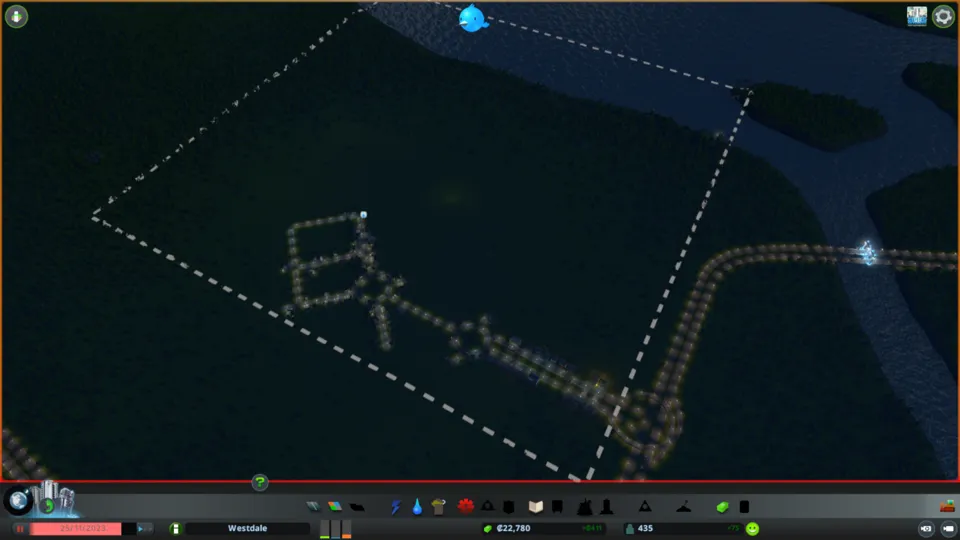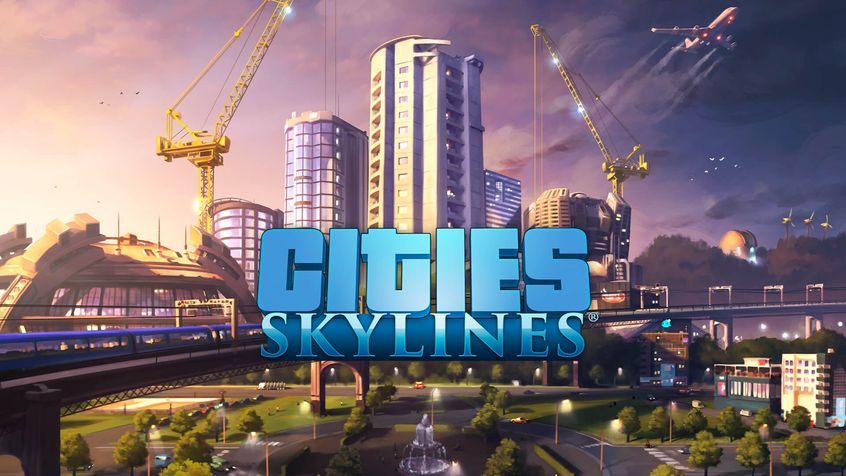Cities Skylines
I play a lot of city builders. I enjoy the quiet zen - or sometimes frantic panicking - of building something, watching it grow and evolve, and change from a lonely patch of nothing into something glorious. I enjoy planning and adapting, seeing where my plans work and where they fail, and changing those plans for the future.
I also really, really enjoy grossly overthinking every city builder I play. Maybe it’s a consequence of needing this one thing in life to be orderly and sensible. Maybe it’s a consequence of running for city council and paying way too much attention to the city around me to let it go. Maybe it’s just that the lack of a story makes me look for something else that will hold my interest, that will lead me to my own story. Maybe I’m ultimately reflecting my conflicted thoughts about reality.
 Nextdoor seems about the same in this reality, though.
Nextdoor seems about the same in this reality, though.
Cities: Skylines is a traditional city builder. The player builds roads, establishes zones, sets up utilities, and publishes tax policies. The goal is to maintain a balance between the various types of zoning - industrial, commercial, and residential - while also having a healthy budget and a growing population. It is, in essence, the ur-example of a city builder. You build an idealised version of traditional city on a traditional backdrop with traditional city problems.
But what does “traditional” mean, though? Traditional for whom? Whose traditions and ideas of a city are reflected in Cities: Skylines, and what is the ideal the game sets the player striving for?
 In my idealised traditional city, police funding isn’t a question because ACAB.
In my idealised traditional city, police funding isn’t a question because ACAB.
Because, as much as Cities: Skylines presents the player with a blank slate of land and the idea that their creativity and ingenuity fuels the rest, there are still fundamental underlying assumptions at the heart of Cities: Skylines about what a city is and what it ought to be.
The game’s developers, Colossal Order, are based in Tampere, Finland, and the impact of that environment reverberates throughout the game. The ideal city that the player is presented with is one of sidewalks, roundabouts, robust public transit, reasonably sized parking lots, and a distinct lack of systemic racism in its policing and zoning policies. Pollution can be tracked and mitigated, and people are willing to walk or bicycle from point A to point B. The city being built is not just any city, but a European one.
There’s nothing wrong with this, of course. The design of the city reflects the lived experience of its designers. However, it is less a city builder, and more a specific idealised neo-liberal vision of what a city ought to be. Within Cities: Skylines, we stop simulating anything resembling reality. We’re not building a city, but instead, live out the European neo-liberal utopia.
 This is probably a picture of neo-colonialism.
This is probably a picture of neo-colonialism.
In every city builder I play, I like seeing how the decisions the game makes pushes against the fundamental assumptions or tropes of the genre. With Cities: Skylines, there is no pushing of those tropes or assumptions - Cities: Skylines plays the genre straight, and in doing so, makes the assumptions of the genre abundantly clear. The ideal city builder embodies the neo-liberal values of capitalism and eternal growth. Though my city may deal with traffic or pollution, these are problems that are not problems in and of themselves - they are reflections of imperfect optimisation or planning. There is no problem that cannot be solve through further expansion of traffic lanes, the addition of more houses or industry, the push for growth upon growth upon growth.
In a city builder, we have the opportunity to build for ourselves a world of fantasy, of any world we like. Yet, within the context of this game, we choose not to do so, but to frame our dreams in terms of what we already know, just stripped away of the problematic elements. We don’t need to think about the impact of our decisions, because there are none. We can grow without concern for anything but what is within our capacity to manage.
There’s a part of me that wonders why that is, why, when presented with the opportunity to play, we choose to instead recreate an idealistic version of our own reality. I am here too, though, playing along, planning roads and placing zones, watching the dream fill in. I think we play these games because we want to believe in the message they send, that it is possible to have the neo-liberal dream without the nightmare that shadows it. We like the goal that capitalism sets forth, and want to believe in a world where it is achievable.
So we build our city, plan our roads, and map our dreams to roundabouts. We believe in the cause of growth without cost, and consumption without guilt, and we delight in them.
Cities: Skylines is a good city builder. It is an unproblematic city builder. It is exactly what a city builder should be. The only question it really asks is whether what we want from a city builder is itself something we ought to want, or if we, much like Cities: Skylines, conflate “is” and “ought” to the degree that reality is hazy through the smog.
Developer: Colossal Order
Genre: City Builder, Simulation
Year: 2015
Country: Finland
Language: English
Play Time: It Has An End?
Youtube: https://youtu.be/OqDItWxC4RM
